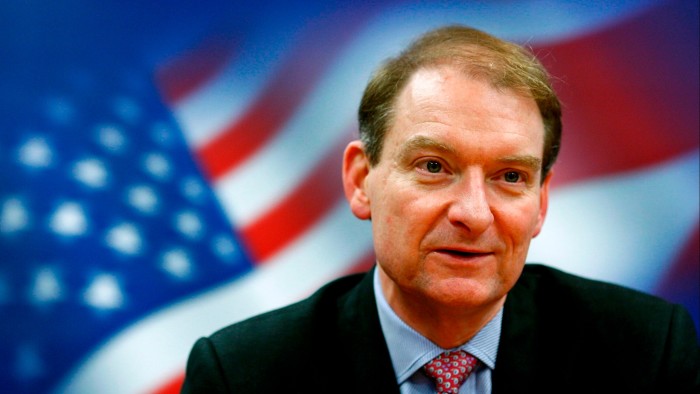Stay informed with free updates
Simply sign up to the US financial regulation myFT Digest — delivered directly to your inbox.
In July 2007, the FT interviewed Citigroup’s then-CEO Chuck Prince in Tokyo, and asked him about the buyout boom. The answer was a banger, given the debacle that would soon unfold:
When the music stops, in terms of liquidity, things will be complicated. But as long as the music is playing, you’ve got to get up and dance. We’re still dancing.
Some have defended the quote as being narrowly about acquisition finance, which was indeed still humming along (albeit increasingly out of tune). A few weeks afterwards, an RBS-led consortium sweetened its nearly $100bn offer for ABN Amro with some extra cash.
However, Prince also dismissed talks of subprime mortgage crisis and argued that “the depth of the pools of liquidity is so much larger than it used to be that a disruptive event now needs to be much more disruptive than it used to be.” It has therefore justifiable gone down in the record books as one of the all-time classic top-of-the-market quotes.
Sadly, it doesn’t have quite the same level of pizzazz as Prince’s “get up and dance” quote, but Alphaville suspects that this quote by the SEC’s new chair Paul Atkins — made at an open meeting a few weeks ago — will age similarly badly, if not perhaps quite as quickly:
One thing that I know is true with respect to FSOC [the Financial Stability Oversight Council] is, at least my counterparts on that body, are in agreement that non-bank financial institutions don’t pose systemic risk to our markets.
Look, yes, the systemic dangers posed by popular bogeymen like private credit are possibly overstated (for now at least). Banks are historically the main locus of systemic financial risk, given the multitude of vital functions they fulfil. Investment managers really are built differently, and applying the same bank-centric “too big to fail” regulatory framework to them always seemed a bit weird.
However, arguing that “non-bank financial institutions don’t pose systemic risk to our markets” is plainly ludicrous.
Alphaville would argue that even 2008 was actually more of a non-bank financial crisis than it was a bank financial crisis.
Even if you classify the likes of Lehman Brothers and Merrill Lynch as traditional banks (though their dependency on wholesale finance really made them quintessential shadow banks), how can you memory-hole how the US government felt forced to guarantee the entire then-$4tn money market fund industry?
Forgetting the LTCM shenanigans might be forgiven — though Atkins was an experienced lawyer with a senior stint at the SEC under his belt at the time — but the new SEC chair must surely have been aware of the near-catastrophe that unfolded in the US Treasury market in 2020. That required the Federal Reserve to fire off more QE in a few weeks than it did in all of 2008.
Sure, yes, we had the Silicon Valley Bank debacle in 2023, but for every SVB we have probably had a dozen major mishaps in the shadow banking world, several of which could easily have escalated into something more serious — mostly because of their myriad links to the banking system.
Are banks still the bigger absolute danger? Yes, given their greater importance. But do non-banks pose zero danger? C’mon.
If you think we’re taking Atkins out of context you can see the whole open meeting below. The topic was once again delaying the deadline for a revised “Form PF” — the requirement that hedge funds and similar investment vehicles report more information to the SEC. The comment comes in his closing remarks at about the 37 minute mark.
It’s possible that Atkins didn’t mean to express himself quite so definitively. Alphaville also finds its hard to believe that all his counterparts on FSOC think that non-banks are harmless, given how much FSOC has — across administrations — fretted about this.
But it’s precisely the kind of off-the-cuff quote that people like us will roll out again and laugh at the next time the non-bank bit of the finance industry soils itself.
Further reading:
— SEC commissioner Crenshaw rips the agency’s ‘regulatory Jenga’ (FTAV)
https://www.ft.com/content/7ed3ddc7-0229-40c6-87a6-d0946760a165


